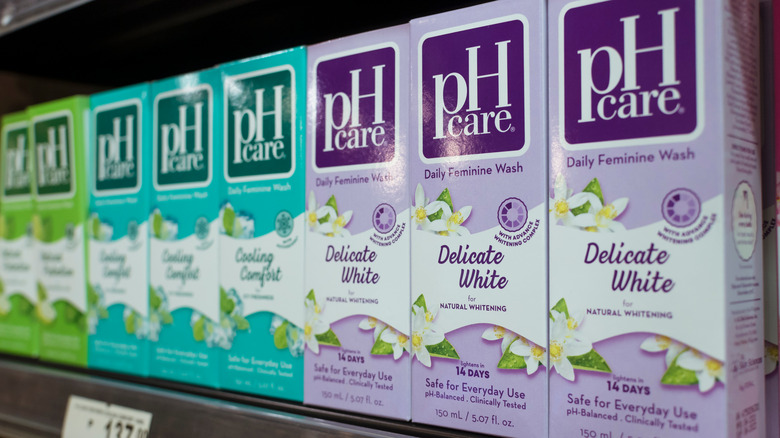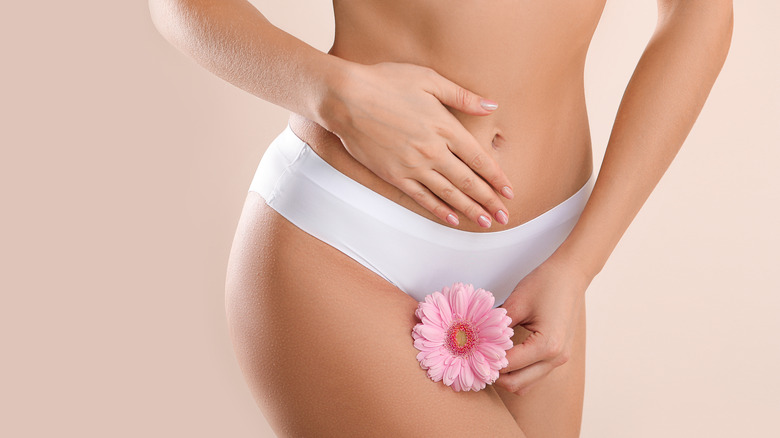Are Feminine Hygiene Washes Bad For You?
Feminine hygiene washes are designed to cleanse your private area and some formulas contain lactic acid or other compounds claiming antimicrobial activity. One 2020 study published in the journal Antibiotics wanted to study the impacts of feminine washes on the vulvar microbiome. The study found that the gel wash participants used daily did not negatively affect skin pH, was well-tolerated without causing irritation, and increased skin moisture. While this study suggests positive outcomes of using feminine washes, other healthcare professionals remain skeptical.
Intimate hygiene products may also contain potentially harmful chemicals, warns Women's Voices for the Earth. Benzethonium chloride, D&C Red 33, DMDM hydantoin, FD&C Yellow No. 5, and Quaternium-15 are just a few to mention. DMDM hydantoin, for example, can expose you to formaldehyde, cause allergic reactions, or increase the risk of cancer. Additionally, the fragrances in some feminine hygiene products can potentially even cause endocrine disruption.
But some experts say that it's perfectly fine to use feminine hygiene washes as long as you choose a fragrance-free formula with no harsh chemicals.
Important considerations for choosing the right feminine hygiene wash
A vagina maintains a certain pH level, and when out of balance, it can cause odor, irritation, and infection (via Prevention). Many feminine hygiene products claim to balance vaginal pH. But do they really work? Health experts say they do, but only if choosing the right one. Gels or cream-based products that go inside the vagina are the feminine products you want to look for. Washes designed for external use won't help much.
So, how do external-use feminine washes compare? Some experts say feminine hygiene washes are sometimes more preferable over regular soap. "A [person with a vulva] would choose a feminine wash over regular soap because standard soap or shower gels are usually too harsh for the vulva," Stacy Henigsman, OB-GYN, tells Well and Good. But it's important to read the ingredient list. She adds, "The alkaline nature of regular soap can strip the vulvar skin and leave it irritated, but it also may kill the helpful Lactobacilli, leaving the woman more prone to bacterial and yeast infections." To reduce the risk of vaginal irritation, choose a wash without sulfates, perfumes, parabens, glycerin, mineral oil, preservatives, or dyes, according to Well and Good.


